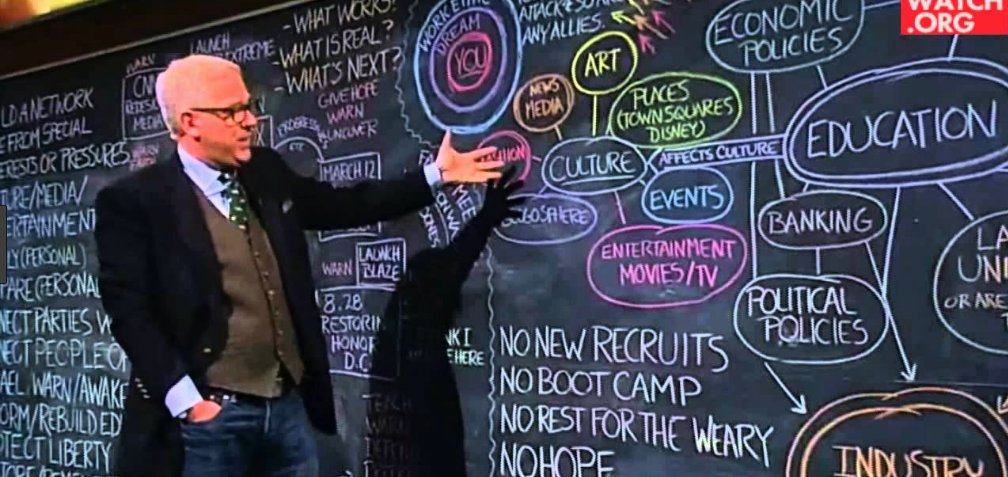
After blogging the other day that big banks will never be replaced and they’re just playing a game of Pac-Man, I was watching this two-minute explainer of Michael Porter’s five forces from Harvard Business Review (a two-minute video):
The five forces are buyers (customers), suppliers, substitutes, new entrants and existing rivals. It’s an old concept – first published in HBR in 1979 – but there’s nothing wrong with old concepts. The question is: do they still hold true?
A good example of another old concept (1967) are the four P’s of marketing by Kotler – which I blogged about the other day. Six years ago, The Financial Brand was asking if this concept was dead.
Today, I could ask if Porter’s five forces is dead. I could equally ask if all old management theories are dead? All old management theories were born before the internet. Are they all dead?
Yes.
Categorically yes.
Every management theory proposed before the year 2000 is dead. These theories were designed for another age, another era, another business construct, another world, another everything. They have no relevance today, except as useful concepts to consider in strategy.
What are the management theories we should subscribe to today?
I have no idea. I don’t adhere to any, except those that make sense to my own way of thinking about the internet, digital, mobile and the world going forward. Y’see, the issue with Kotler and Porter’s models are that they were built on the industrial era of supply chains and product sales. These no longer apply. Today, the supply chain is digital and real-time – I could create a new substitute business as a new entrant overnight – and the focus is no longer on selling products but fulfilling customer’s digital needs.
I’ve made this point often, but we have shifted from pushing products through channels to get share of wallet to improve our cross-sell ratio TO engaging customers through devices to gain their trust and increase our mindshare. It’s a really different mentality.
Equally, I no longer see buyers, sellers, substitutes. I see creation, ideation, innovation. Are ideas and innovation more important than buyers and sellers? No. But you need both. You always need buyers and sellers, but now you need to think almost every day: could there be a better way of doing this? Could there be another way of doing this? Has technology changed the game? Has anyone changed the game?
The fact is that almost every day, someone is changing the game. Changing the markets in small, imperceptible ways with supply chains, value chains, customer experiences and business models that are different. It is why Amazon became Allegro became Alibaba became whatever. It is why money flowed to the internet giants – built for the digital age – and away from analogue incumbents – built for the industrial age – during this coronavirus lockdown.
It’s really all about building businesses for the digital age. Creating companies born on the internet. Dropping all appendages and legacy from the industrial era. Being truly digital and zero analogue.
That’s hard when you’re confined by business ideas from the last century, ingrained by universities and endorsed by business practice. When do these work no more? Where are the new ideas that work now?
I can’t tell you. What I can tell you is that if you focus on four key things today, then you will be far more fit than thinking about four P’s or five forces. The four things I would focus upon:
Need: What customer problem are we trying to solve?
Alternatives: Is it already solved?
Design: Are we solving this the best we can?
Innovation: Could we solve it better if we started again?
I was going to call the last one Again as the acronym could then be NADA, but hey, I’m no management guru.
Anyways, I’m sure there is more that could be added – please feel free to do so if you feel so inclined – but these four things would be my trailblazers for digital business creation today, as a start point.
Chris M Skinner
Chris Skinner is best known as an independent commentator on the financial markets through his blog, TheFinanser.com, as author of the bestselling book Digital Bank, and Chair of the European networking forum the Financial Services Club. He has been voted one of the most influential people in banking by The Financial Brand (as well as one of the best blogs), a FinTech Titan (Next Bank), one of the Fintech Leaders you need to follow (City AM, Deluxe and Jax Finance), as well as one of the Top 40 most influential people in financial technology by the Wall Street Journal's Financial News. To learn more click here...

